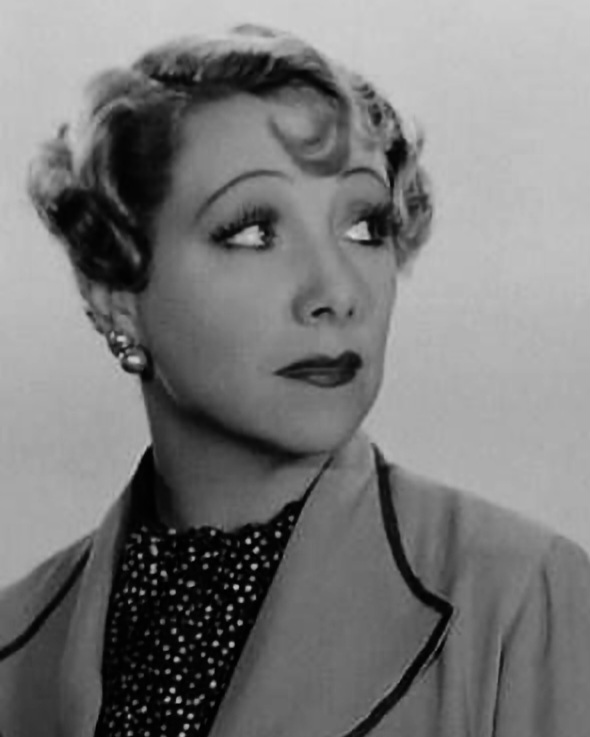Related Research Articles

Sioux City is a city in Woodbury and Plymouth counties in the northwestern part of the U.S. state of Iowa. The population was 85,791 in the 2020 census, which makes it the fourth-largest city in Iowa. The bulk of the city is in Woodbury County, of which it is the county seat, though a small portion is in Plymouth County. Sioux City is located at the navigational head of the Missouri River. The city is home to several cultural points of interest including the Sioux City Public Museum, Sioux City Art Center and Sergeant Floyd Monument, which is a National Historic Landmark. The city is also home to Chris Larsen Park, commonly referred to as "the Riverfront", which includes the Anderson Dance Pavilion, Sergeant Floyd Riverboat Museum and Lewis and Clark Interpretive Center. Sioux City is the primary city of the five-county Sioux City, IA–NE–SD Metropolitan Statistical Area (MSA), with a population of 168,825 in 2010 and a slight increase to an estimated 169,405 in 2018. The Sioux City–Vermillion, IA–NE–SD Combined Statistical Area had a population of 182,675 as of 2010 but had decreased to an estimated population of 178,448 as of 2018.

Bill Nye the Science Guy is an American half-hour live action science education television program created by Bill Nye, James McKenna, and Erren Gottlieb, with Nye starring as a fictionalized version of himself. It was produced by KCTS and McKenna/Gottlieb Producers and distributed by Buena Vista Television with substantial financing from the National Science Foundation. The show aired in syndication from September 10, 1993, to February 5, 1999, over six seasons and 100 episodes; beginning in season 2, a concurrent run was added on PBS from October 10, 1994, to September 3, 1999, with the show's first run remaining in syndication.

Virginia Field was a British-born film actress.

Marjorie Augusta Gateson was an American stage and film actress.

Pierre Frank Watkin was an American character actor best known for playing distinguished authority figures throughout the Golden Age of Hollywood. He is best remembered for his roles of Mr. Skinner the bank president in The Bank Dick (1940); Lou Gehrig's father-in-law Mr. Twitchell in Pride of the Yankees (1942); and the first actor to portray Perry White in the Superman serials Superman (1948) and Atom Man vs. Superman (1950).

The Sioux City Journal is the daily newspaper and website of Sioux City, Iowa. Founded in 1864, the publication now covers northwestern Iowa and portions of Nebraska and South Dakota.

The Ringling brothers were seven American siblings who transformed their small touring company of performers into one of America's largest circuses in the late 19th and early 20th centuries. Four brothers were born in McGregor, Iowa: Alfred T., Charles, John and Henry William, and the family lived in McGregor for twelve years, from 1860 until 1872. The Ringling family then moved to Prairie du Chien, Wisconsin, and finally settled in Baraboo, Wisconsin, in 1875. They were of German and French descent, the children of harness maker Heinrich Friedrich August Ringling (1826–1898) of Hanover, and Marie Salome Juliar (1833–1907) of Ostheim, in Alsace. In 1919, they merged their Ringling Brothers Circus with America's other leading circus troupe, Barnum and Bailey, ultimately creating the Ringling Bros. and Barnum & Bailey Circus, which operated for 98 years, until 2017.

Martha Mears was a radio and film contralto singer, active from the 1930s to 1950s.
KAYL is a radio station licensed to serve the community of Storm Lake, Iowa. The station broadcasts a Regional Mexican format in Spanish. KAYL has been owned by Community First Broadcasting since 2010.

Roscoe Albert Holm was a Major League Baseball player. Holm played for the St. Louis Cardinals for seven seasons between 1924 and 1932, missing the 1930 and 1931 seasons. Holm was a member of the Cardinals first World Series in 1926. He batted and threw right-handed. Holm suffered from mental illness later in life; nearly two decades after leaving professional baseball, he killed his wife shortly before killing himself.
Wilson Trailer Company is an Iowa corporation, independent cargo trailer manufacturer headquartered in Sioux City. Wilson manufactures (i) industrial road transport trailers for livestock, grain, and the like – flatbed and gooseneck design, aluminum and custom – and (ii) trailer-equipment and accessories such as self-unloading belt conveyors.
The Tri-State Conference was an intercollegiate athletic conference associated with National Association of Intercollegiate Athletics (NAIA) the that existed from 1960 to 1981 and one of two conferences to share this name. The league had members in the Midwestern states of Iowa, Nebraska, South Dakota, and Minnesota.
The 1901 Iowa State Cyclones football team was an American football team that represented Iowa State College of Agricultural and Mechanic Arts as an independent during the 1901 college football season. In its first and only season under head coach Edgar M. Clinton, the team compiled a 2–6–2 record and was outscored by a total of 133 to 56. William Scholty was the team captain.
Dean Charles Laun was an American football coach. He served as the head football coach at Buena Vista University in Storm Lake, Iowa from 1956 to 1959, compiling a record of 24–18–2.

J. D. Scholten is an American paralegal, politician and retired professional baseball player from the state of Iowa. He was the Democratic nominee for Iowa's 4th congressional district in the 2018 and 2020 elections.
Cindy Cash is an American singer, author, and antiques dealer.
The 1941 North Dakota Fighting Sioux football team was an American football team that represented University of North Dakota in North Central Conference (NCC) during the 1941 college football season. In its 14th season under head coach Charles A. West, the team compiled a 4–5 record, tied for fourth place in the NCC, and was outscored by a total of 145 to 110. The team played its home games at Memorial Stadium in Grand Forks, North Dakota.
The 1941 Iowa State Teachers Panthers football team represented Iowa State Teachers College in the North Central Conference during the 1941 college football season. In their sixth season under head coach Clyde Starbeck, the team compiled a 5–3 record, won the conference championship, and outscored opponents by a total of 151 to 29.
The 1955 Drake Bulldogs football team was an American football team that represented Drake University as an independent during the 1955 college football season. Led by fourth-year head coach Warren Gaer, the Bulldogs compiled a record of 4–4.
References
- 1 2 3 4 5 6 7 8 9 Glenn, George D.; Poole, Richard L. (1993). The Opera Houses of Iowa. Iowa State University Press. pp. 65–66. ISBN 978-0-8138-0984-7.
- ↑ "Eddyville". Ottumwa Tri-Weekly Courier. March 24, 1903. Retrieved January 3, 2022– via Newspapers.com.
- 1 2 Holmes, Marjorie (1978). Love and laughter. G.K. Hall. pp. 211–213. ISBN 978-0-8161-6548-3 – via Archive.org.
- 1 2 "Marjorie Sweet Spent Her Girlhood in Storm Lake". Sioux City Journal. January 30, 1936. Retrieved January 3, 2022– via Newspapers.com.
- ↑ "Sweet Players to Present Inside the Law for First Half". Sioux City Journal. August 28, 1932. Retrieved January 3, 2022– via Newspapers.com.
- ↑ Heitland, John (December 15, 1987). The Man From U.N.C.L.E. Book. Macmillan. p. 22. ISBN 978-0-312-00052-3.
- 1 2 "National Register of Historic Places Multiple Property Documentation Form". National Register of Historic Places. August 20, 1993. p. 24. Retrieved November 7, 2021.
- ↑ "Sweet Shows at Clay Fair". The Lake Park News. August 28, 1941 – via Newspapers.com.
- ↑ "A Messenger Boy". The Daily Times. December 15, 1911. Retrieved January 3, 2022– via Newspapers.com.
- ↑ "City Briefs". Sioux City Journal. September 4, 1930 – via Newspapers.com.
- ↑ "Sweet Players to Make a Tour of Woodbury County". Sioux City Journal. August 2, 1931. Retrieved January 3, 2022– via Newspapers.com.
- ↑ "Coming". The Humboldt Republican. June 23, 1933. Retrieved January 3, 2022– via Newspapers.com.
- 1 2 "Sweet Players to Offer Farce, Up in Mabel's Room, This Week". Sioux City Journal. August 20, 1933. Retrieved January 3, 2022– via Newspapers.com.
- ↑ "George Sweet, Well Known Operator of Tent Shows, Dies". The Globe Gazette . December 1, 1936. Retrieved November 16, 2021– via Newspapers.com.
- ↑ "Sweet Shows At Clay Fair". The Lake Park News. August 28, 1941. Retrieved January 3, 2022– via Newspapers.com.
- ↑ "Tent Showmen Swap Ideas at Roberson Home". Billboard. March 29, 1947.
- ↑ Billboard. Nielsen Business Media, Inc. 26 February 1949. p. 55. ISSN 0006-2510 . Retrieved January 3, 2022.
- ↑ Apps, J.; Dahlinger, F. (2013). Ringlingville USA: The Stupendous Story of Seven Siblings and Their Stunning Circus Success. Wisconsin Historical Society Press. p. 19. ISBN 978-0-87020-549-1 . Retrieved January 3, 2022.
- ↑ "Wanted". Billboard. February 17, 1951.
- ↑ "Funeral Today at Storm Lake for Mrs. Sweet". Sioux City Journal. July 29, 1953. Retrieved January 3, 2022– via Newspapers.com.
- ↑ "Geo D. Sweet and His Famous Players". Des Moines Register. July 29, 1953. Retrieved January 3, 2022– via Newspapers.com.